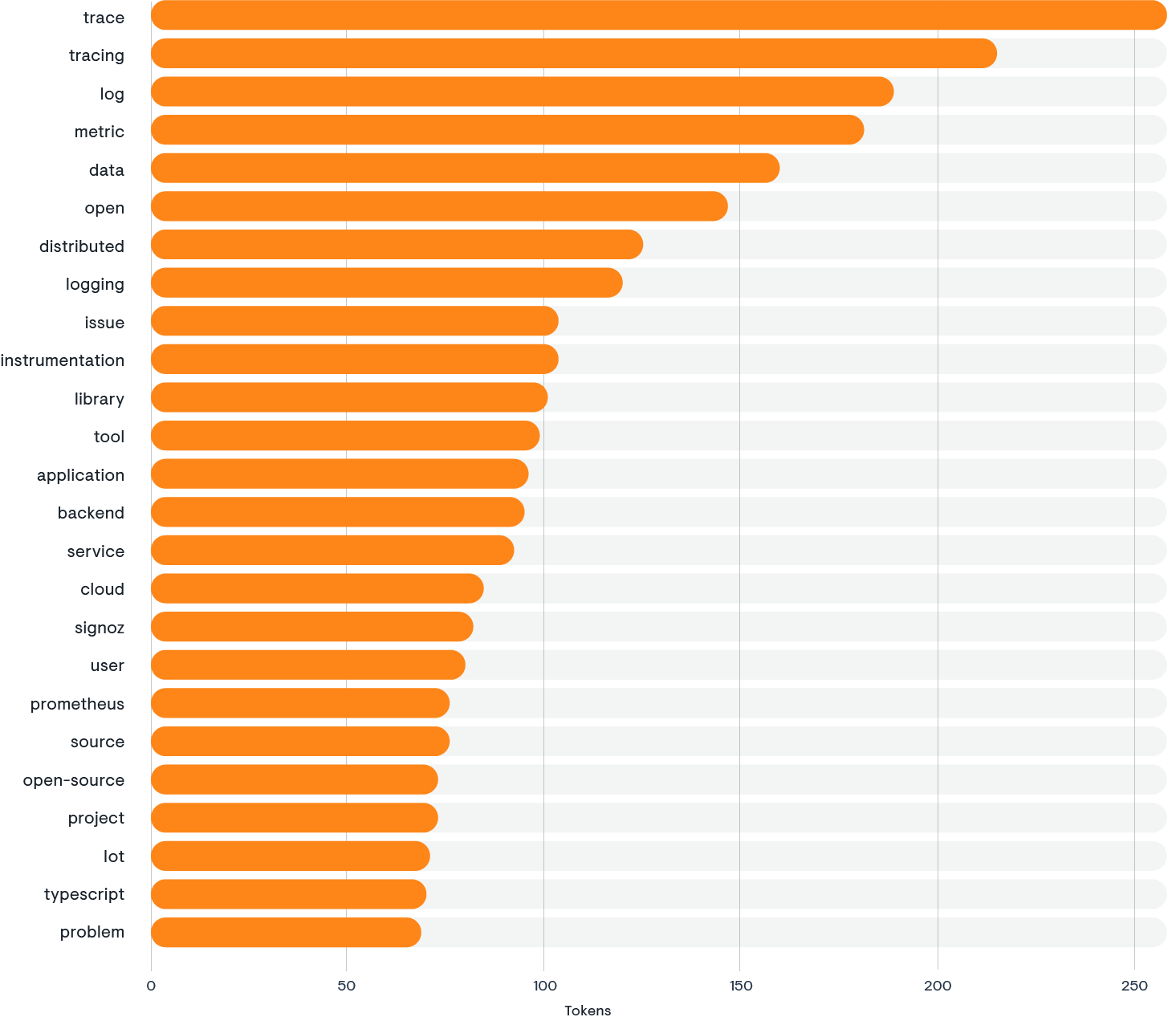OpenTelemetry: business perspective
OpenTelemetry garnered significant interest in the Hacker News community due to several reasons:
1. Vendor-neutral framework
OpenTelemetry is a vendor-neutral framework and standard for generating performance data about systems, particularly distributed ones. This makes it a versatile tool for a wide range of applications and systems.
2. Ease of switching technologies
The lack of lock-in with OpenTelemetry is appreciated by users, who have found it easy to switch technologies. This flexibility is a significant advantage in a rapidly evolving tech landscape.
3. Detailed system insights
OpenTelemetry allows for granular insights into system performance. For instance, it enables the transfer of trace IDs across system boundaries, revealing in detail what happens during a process. This can help identify bottlenecks and optimize performance.
4. Improved logging
OpenTelemetry provides better logging capabilities, which is particularly useful for data science services and analyses.
5. Standardization
OpenTelemetry standardizes the way telemetry data is collected and transmitted to backend platforms. This standardization is crucial in a world where digital interconnectedness is increasingly important.
6. Integration with other tools
OpenTelemetry’s vendor-neutral approach allows users to send data to any observability backend of their choice, providing greater flexibility and customization options.
7. Community support
OpenTelemetry is a Cloud Native Computing Foundation (CNCF) project, which means it has a thriving open source community. This community support is a significant factor in its popularity.
8. Scalability
OpenTelemetry can handle high ingestion volumes, making it suitable for large-scale applications. These factors combined make OpenTelemetry a hot topic among the Hacker News community, since it offers a comprehensive, flexible, and community-supported solution for system observability and performance optimization.
Topics on Hacker News by number of mentions

Each of these topics is crucial in the Hacker News discussion about OpenTelemetry for the following reasons:
1. Tracing
Tracing is a key aspect of OpenTelemetry because it allows developers to track the journey of requests as they traverse through various microservices in a system. This is particularly useful in distributed systems where it’s challenging to understand the system’s behavior just by looking at individual components. Tracing provides a holistic view of the system’s performance and behavior, making it easier to identify bottlenecks and performance issues.
2. Logging
Logging continues to play a critical role in providing flexible, application-specific, event-driven data. OpenTelemetry enhances the value of existing application logging flows by providing common metadata across tracing, metrics, and logging to facilitate contextual correlation. This approach meets developers where they already are, using hooks into popular logging frameworks.
3. Metrics
Metrics are essential for monitoring the performance of systems and applications. They provide quantitative data about processes running in a system, such as the number of requests processed, error rates, or resource usage. OpenTelemetry provides a unified way to collect and export these metrics, making it easier to monitor and analyze system performance.
4. Data
The data collected with OpenTelemetry is vendor-agnostic and can be exported in many formats. This data is critical for observing the state of distributed systems, especially in microservices and polyglot architectures. OpenTelemetry aims to standardize the generation, collection, and management of this telemetry data.
5. Instrumentation
Instrumentation is the method of modifying source code to generate output for validating application performance. OpenTelemetry provides a set of tools, APIs, and SDKs for this purpose, enabling developers to make their applications observable and report performance data.
6. Prometheus
Prometheus is a popular open source monitoring system and time-series database. It is often discussed in the context of OpenTelemetry because of its wide usage in the industry for collecting metrics from monitored targets by scraping metrics HTTP endpoints on these targets. OpenTelemetry can export metrics to Prometheus, making it a key part of the observability ecosystem.
7. Open source
OpenTelemetry is an open source project, which means it benefits from the collective effort of the community. This leads to rapid development, extensive testing, and wide-ranging support. Being open source also means that it’s free to use and can be customized to fit specific needs, making it a popular choice among developers.
